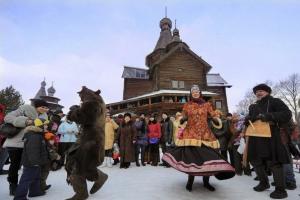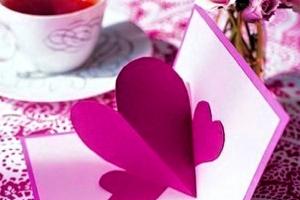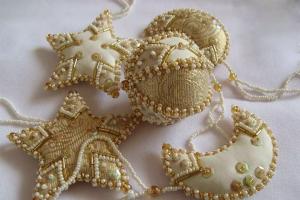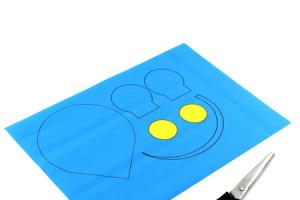It is impossible to imagine being in kindergarten without joyful holidays, touching matinees, friendly tea parties and fun starts. Events organized by the teacher as part of leisure activities give preschoolers vivid impressions that will last a lifetime. And at the same time, in a fun way, the children gain new knowledge and reveal their creative abilities, becoming more proactive and independent.
The importance of organizing leisure activities in kindergarten
Leisure activity is a complex social area in which a person restores his psychological state through rest, fulfills the need for physical activity, communicates and self-develops. An adult independently plans what to do with his free time; the child needs to be helped in this, to guide his activities. Since leisure is a synthesis of entertaining activities and cognition, it is organized by teachers within the framework of a social order - the comprehensive development of the child’s personality.
Leisure is a synthesis of different activities, for example, physical, musical, entertainment and educational
The purpose and principles of organizing leisure time in preschool educational institutions
Leisure activities in preschool educational institutions are aimed at the formation of a healthy, active, harmoniously developed creative personality.
The purpose of organizing leisure and entertainment for preschoolers is to instill in children moral and aesthetic values, a love of traditions and a desire for cultural recreation. This is a special area of the educational process in kindergarten, in which the needs and interests of children are taken into account. Using various forms and methods of organization and taking into account the individual characteristics of students, teachers imbue cultural and leisure activities with moral content while observing the principles:
- positive tension: creating a friendly atmosphere, positive emotions, receiving joy from communication and collective activities;
- independence: creating conditions for self-development and unleashing the creative potential of each student;
- complexity: taking into account all components of a healthy lifestyle;
- integrity: developing children's self-awareness.
While having fun, children become familiar with the folk traditions and history of the country
Activities
Activities within the framework of cultural and leisure activities can be divided into thematic blocks:
- Sports:

- Musical:

- Literary:

- Theatrical:

- Art:

- Intellectual: conducting quizzes, games of ingenuity and didactic games (brain ring, KVN, “I want to know everything”, “Field of Miracles”).
Participation in intellectual games develops intelligence and the spirit of healthy competition
- Ecological:
- formation of environmental consciousness in children,
- nurturing love for nature and native land,
- conducting excursions to a park, agricultural town, farm,
- participation in environmental actions.
Activities can integrate various areas of children's activity, for example, physical and speech
Table: tasks of cultural and leisure activities in kindergarten
| Educational |
|
| Developmental |
|
| Educational |
|
Types of leisure and entertainment in preschool educational institutions
Work within the framework of cultural and leisure activities is carried out daily. The teacher organizes it independently, with the involvement of a music director or physical education teacher, and establishes interaction with parents. Free time should not be filled exclusively with rehearsals for children's matinees; there are various types of leisure activities for preschoolers.
- Rest. After strong mental stress, the child needs to restore balance of strength and rest. The ability of self-regulation (determining the need to relax, change the type of activity) is formed by older preschool age. Prevention of fatigue in pupils of the junior and middle groups is organized by the teacher. Rest can be carried out in a passive form: children look at pictures in books, have calm conversations, play quiet games, listen to the teacher read a book. If a child is unable to relax using traditional methods, it is possible to provide psychological support (for example, play with the child in the “Magic Room” or in the “Water and Sand Center”). Active recreation involves physical activity: participating in outdoor games, doing gymnastics, riding a bicycle, scooter, sled, etc. while walking.
Children can relax independently, using the resources of the subject-spatial environment in the group.
Active recreation involves relieving stress through physical activity.
- Entertainment. This type of cultural and leisure activity compensates for routine and unemotional moments in everyday life. Entertainment evokes a feeling of joy in children and genuine interest. At the same time, there is an incentive to obtain new information, and if the child is a participant in an entertaining activity, the practical skills acquired during classes are improved and consolidated. In kindergarten, preschoolers can only be spectators (watching a play, a science show, a musician's performance). Parents of students are invited to participate in the entertainment (conducting creative master classes, musical and literary leisure, educational and sports quests for family teams). Entertainment varies by theme:

- Holidays. Carrying out events dedicated to public holidays and important events in the life of the kindergarten: Autumn Festival, matinees in honor of Mother's Day, New Year, International Women's Day, Defender of the Fatherland Day, festive concerts for Cosmonautics Day, Victory Day, graduation. In this cultural and leisure activity, preschoolers are active participants, demonstrate their talents, and also help as much as possible in preparing and decorating the premises.
For festive events in kindergarten, pupils prepare creative performances, and also participate in the creation of decorations and props
Leisure and entertainment in preschool educational institutions
The teacher should remember that leisure is a compensatory type of children's activity; entertainment and cultural recreation are opposed to routine activities. Therefore, free time activities have a strong emotional focus; children should be in a good mood.
Discussion of heroes and plots of Russian folk tales stimulates children's interest in creative activities
Motivating start to a lesson on cultural and leisure activities
Classes within the framework of cultural and leisure activities contain a mandatory structural component - a motivating beginning. To attract children's interest in the upcoming event and activate their curiosity, various motivation techniques are used:
- studying visual material:
- viewing thematic posters,
- pictures,
- reproductions,
- illustrations in books,
- layouts,
- mini-exhibitions in the corner of knowledge;
- conducting cognitive and heuristic conversations;
- creating surprise moments;
- conducting didactic and outdoor games, inclusion in a game situation:
- visiting a group by a fairy-tale character,
- an imaginary journey to a fantasy land,
- transfer to a fairy tale (for the performance of a dramatization game);
- reading poems, stories, small folklore forms (ditties, jokes, riddles, proverbs and sayings);
- use of ICT: viewing presentations with photos and videos, music.
Since the leading activity of preschoolers is play, children are happy to engage in play situations and participate in a variety of activities.
Table: examples of motivating beginnings of classes for different topics
| Lesson topic | Option for a motivating start |
| “Journey to the Land of Fairy Tales” (leisure-entertainment) |
|
| “Visiting a Russian folk tale” (theatrical leisure) |
|
| "Australia! Australia! Beautiful continent" (sports leisure) | Studying visual material and conducting an educational conversation. The children are invited to study a map of Australia, which shows representatives of flora and fauna, and answer the questions:
The teacher offers to get to know the features of the mainland and its inhabitants better by participating in themed outdoor games. |
| “Joyful colors of winter” (musical leisure) |
|
Event Planning
Conducting classes within the framework of cultural and leisure activities is allocated free time in the educational process in the morning and evening. Leisure activities should be systematic and thoughtful, carried out according to calendar and thematic planning. In classes, the principle of frequent change of types of children's activities is observed (observation, conversation, physical education, creative, speech, motor activity).
The frequency of cultural and leisure activities is determined by the age and individual characteristics of the students, the scope of the assigned tasks and the breadth of the content of the holiday or fun. Sports and creative leisure activities are held 1–2 times a month, physical education, musical, literary, theatrical events and concerts - 2–3 times a year.
A special place in planning leisure and entertainment in kindergarten is occupied by folk and church holidays, street celebrations and rituals associated with the folk calendar: harvest festival, Christmas Eve, Christmas festivities, Maslenitsa fun, farewell to winter, Palm Sunday and Easter, Honey and Apple Savior . Getting to know traditions and ancient customs introduces children to the culture of their native country and fosters a reverent attitude towards preserving history.
Introduction to folk traditions is an important component of the educational process in preschool educational institutions.
Long-term planning involves holding events together with a music director, a physical education teacher, and additional education teachers (heads of theater and fine arts clubs, dance studios, sports sections). During the school year, consultations are held for parents, at which the tasks of organizing leisure and entertainment in kindergarten are indicated, a plan for future cultural events is outlined, parental initiative in preparing and participating in events is encouraged, and a list of recommendations is given for organizing home leisure (reading, drawing, experimenting) , educational walks). Thus, parents are given the opportunity to collaborate with the teaching staff of the preschool educational institution and become equal participants in the educational process.
Fun activities that involve children with moms and dads have a therapeutic effect on family relationships
Table: card index of topics of cultural events
| Thematic focus of cultural and leisure activities | Leisure | Holidays |
| Sports |
|
|
| Creative (musical, theatrical) |
|
|
| Literary |
|
|
| Cognitive |
|
|
| Social |
|
|
| Folk, Christian |
|
|
Table: example of a summary of cultural and leisure activities in the preparatory group
| Author | Zhilina E. V., MDOU D/s "Vasilyok" r. Mullovka village, Ulyanovsk region. |
| Name | "Journey Through Fairy Tales" |
| Program content |
|
| Preliminary work |
|
| Material |
|
| Progress of the lesson | The melody “Come and visit us” from the fairy tale “There, on unknown paths” sounds. Presenter: Today, guys, I want to invite you to travel to the amazing land of fairy tales. It is generously inhabited by various good and evil heroes: gnomes and trolls, sorcerers and goblins, Baba Yaga and Kashchei the Immortal, Ivan Tsarevich and Helen the Beautiful. Getting there is not difficult, you just need to close your eyes for a few moments and imagine that we are flying on a magic carpet, across seas and oceans, forests and steppes. Here it goes lower and lower, and before us is the first fabulous stop. Here is someone's letter, and you will find out who sent it by guessing the riddle.
Right. Now let’s find out what the gnome wants. (Reads the task: guess fairy tales from illustrations). You have to learn fairy tales. I will show you illustrations for famous fairy tales, and you must accurately say the name of the fairy tale and its main characters. (Shows 6–7 illustrations.)
The station is called “Guess” from Little Red Riding Hood. I will read you excerpts from fairy tales you know, and you must guess their names.
The presenter praises the children and gives them another petal. The journey continues. (Music sounds).
Presenter: I see, you really know a lot about fairy tales. Well done! Now let's go to the next station. (Music sounds).
Presenter: We completed the task, let's move on. (Music sounds). And here a magic chest awaits us, let's see what's in it. (In the chest there are masks for playing out the fairy tale “Teremok”).
(The song “Fairy tales walk around the world” by M. Plyatskovsky is played). |
Temporary lesson plan for cultural and leisure activities
The duration of leisure and entertainment depends on the age and individual characteristics of preschoolers.
Leisure duration:
- in junior and middle groups - 25–30 minutes;
- in senior and preparatory groups - 45–50 minutes.
Duration of holidays:
- in the first younger group - 20–30 minutes;
- in the second younger group - 30–35 minutes;
- in the middle group - 45–50 minutes;
- in the older group - 60 minutes;
- in the preparatory group - up to 1 hour 30 minutes.
The duration of the festive event depends on the age and individual characteristics of the pupils
Duration of street fun and folk festivals:
- in junior and middle groups - no more than 1 hour;
- in senior and preparatory groups - up to 1 hour 30 minutes.
Let's consider the approximate duration of the structural components of specific cultural and leisure activities.
Folklore and physical education leisure time “Time for business, time for fun” in the senior group
- Organizational moment - 2 minutes.
- Surprise moment - 5 minutes.
- Outdoor game “Horse” - 7 minutes.
- Game exercises “Guess it” - 10 minutes.
- Outdoor game “Cat and Birds” - 6 minutes.
- Round dance “Sun” - 4 minutes.
- Sports game “Catch the ball” - 8 minutes.
- Summing up your leisure time - 3 minutes.
Musical celebration for Defender of the Fatherland Day in the preparatory group
- Greeting guests of the holiday - 2 minutes.
- Performance of the song “Defenders of the Fatherland” - 3 minutes.
- Performance of the song “We will serve in the army” - 3 minutes.
- Intellectual warm-up for the boys' team and the dads' team - 8 minutes.
- Dance “Sailors and Sailors” - 4 minutes.
- Competition for adults and children “Strong Men” - 6 minutes.
- Reading poems - 5 minutes.
- Performance of the song “Our Dads” - 3 minutes.
- Game for children and guests “Sandwiches” - 7 minutes.
- Poetic congratulations to the boys from the girls of the group - 5 minutes.
- Game "Obstacle" - 7 minutes.
- Musical game “Girls hee hee, boys ha ha” - 7 minutes.
- Dance "Stars" -3 minutes.
- Congratulatory words from the host of the holiday, presentation of cards and gifts - 7 minutes.
Leisure activities with the participation of parents “Maslenitsa” in the middle group
- Organizational moment - 3 minutes.
- Excursion into the past (use of ICT: educational slide show) - 10 minutes.
- “Know-It-All” competition - 5 minutes.
- Competition "Guess it" - 5 minutes.
- Competition "Folk Games" - 5 minutes.
- Steeplechase competition - 4 minutes.
- Competition "Fist Fights" - 4 minutes.
- Music competition - 8 minutes.
- Summing up the results of the competition, invitation to tea with pancakes - 4 minutes.
Examples of organizing leisure and entertainment in kindergarten
Video: music day in kindergarten
Video: literary festival “Days Fly”
Preparing and conducting collective leisure activities in kindergarten creates a sense of group cohesion. By decorating the decorations for the holiday, distributing roles in a dramatization game, mastering the skill of choral singing, participating in team competitions and quizzes, preschoolers interact positively with each other. In joint activities, group traditions are born and the emotional atmosphere improves. Participation in collective events fosters an active and morally oriented personality in every child.
Share with your friends!author: Kostyuchenko Svetlana Valentinovna GBDOU DS No. 6 Kalininsky district, St. Petersburg educator Explanatory note Patriotism, courage, modesty, iron will, knowledge, love for people, knowledge, love for people - these are the main features of the first cosmonaut. S.P. Korolev “Yuri Alekseevich Gagarin - the world’s first person to conquer outer space” is a teaching material developed in...
Consultation for parents Orthodox upbringing of children We all know that a child and children in general should be raised in a family. But few people have thought about the benefits of Orthodox upbringing of children and, in general, about the advantages of an Orthodox family. Looking at today's youth, who have almost forgotten how to communicate without...
Summary of organized educational activities for children of middle preschool age “An incredible adventure in the country of Traffic Lights” Age of children: 4-5 years (middle group). Educational field: social and communicative development. Goal: developing ideas about the rules of the road. Objectives: to strengthen children’s understanding of road signs, traffic lights, and sidewalks. Teach safe behavior on the road...
Author's scripts for holidays that will help teachers and educators prepare and conduct children's matinees, themed evenings and get-togethers, and entertainment events in kindergarten. All materials were written by Maaam project participants; many articles contain photographs from the holidays.
Types of holiday scenarios
The works are sorted by categories (sports, music, thematic...), by public holidays, by seasons. Seasonal leisure activities include such events as the holiday of seeing off winter or welcoming summer, Bird Day, and autumn fairs.
Autumn holidaysWinter holidaysOff-season holidays |
Spring holidaysSummer holidays |
There are original works in our library that are difficult to categorize. For example, “Scenario for the holiday of magic porridge” or “Day of the onion teardrop”, such works are in the heading “Interesting holidays”.
Published scripts
Contained in sections:Includes sections:
- National and folklore holidays. Scripts, entertainment
- Scripts. Sports holidays, physical education entertainment, fun starts
- Ecological holidays, scenarios, quizzes. Nature, planet Earth.
- Holidays for educators and teachers. Event scenarios for preschool employees and teachers
- Performance scripts. Theatrical performances, dramatizations
- Fire safety. Scenarios for events, leisure activities, life safety quizzes
- Traffic rules, traffic lights, road signs. Scenarios for holidays and entertainment
Showing publications 1-10 of 125581.
All sections| Holiday scenarios. Entertainment, leisure, matinees
Entertainment scenario for the senior group “Winter Riddles” Goals and tasks: consolidate children’s ideas about winter (phenomena and objects of living and inanimate nature); continue to develop skills in solving riddles; expand children's vocabulary with words reflecting winter natural phenomena; develop memory, attention, logical thinking and...
Scenario for an autumn matinee in the preparatory group. Theatrical production “Carrot Wedding” A very interesting and funny production that children and parents liked. Our young actors took part in the performance with pleasure! (Music plays, children put on attributes) Leading (narrator) Oh, how beautiful the autumn forest is, Frozen in sleepy silence, And as if they emit light...
Holiday scenarios. Entertainment, leisure, matinees - Entertainment script for the holiday Mother's Day "Mom's Beloved"
Publication “Entertainment script for Mother’s Day “Mommies...”
 An evening of entertainment for Mother's Day “Beloved Moms” in a preparatory school group Presenter: Good evening, dear mothers! Hello, dear women! Let me congratulate you on a tender family holiday, Mother's Day! There is a holy and prophetic sign in nature, clearly marked throughout the centuries...
An evening of entertainment for Mother's Day “Beloved Moms” in a preparatory school group Presenter: Good evening, dear mothers! Hello, dear women! Let me congratulate you on a tender family holiday, Mother's Day! There is a holy and prophetic sign in nature, clearly marked throughout the centuries...
 Image library "MAAM-pictures"
Image library "MAAM-pictures"
Scenario of the New Year's party "In the toy store" in the preparatory group Scenario for the New Year's party "In the Toy Store" in the preparatory group. The Old Year is coming to an end. New Year is approaching. Christmas tree again, Santa Claus. Again, I seriously believe that on New Year’s Eve everything will happen! On this holiday, As soon as the firecrackers fire...
Memo for parents “Rules for attending a matinee in a preschool educational institution for parents” MBDOU DS “Mashenka”, Volgodonsk Memo: “Rules for attending a matinee at a preschool educational institution for parents” Educator: Gaivoronskaya E.S. Dear mothers and fathers, grandmothers and grandfathers! Your child attends kindergarten, and of course you are invited to matinees. And this is great, because you can also...
 b]Instructor. Hello guys! I am glad to welcome you to our hall. You know, you didn’t just say hello, you gave each other a piece of health, because you said “Hello!”, “I wish you health!” A Russian folk proverb says: “You won’t say hello...
b]Instructor. Hello guys! I am glad to welcome you to our hall. You know, you didn’t just say hello, you gave each other a piece of health, because you said “Hello!”, “I wish you health!” A Russian folk proverb says: “You won’t say hello...
Holiday scenarios. Entertainment, leisure, matinees - Outdoor entertainment “Winter-winter and its fun”
 Goal: strengthening children's health, improving physical qualities; create a cheerful, joyful mood in children. Objectives: Educational: to consolidate children’s ideas about the signs of winter; improve motor skills when children perform various exercises...
Goal: strengthening children's health, improving physical qualities; create a cheerful, joyful mood in children. Objectives: Educational: to consolidate children’s ideas about the signs of winter; improve motor skills when children perform various exercises...
Summary of entertainment on traffic rules in the middle group “Travel to the Country of Traffic Lights” Goal: To expand children’s understanding of the street: cars move along the roadway, pedestrians along the sidewalk; continue to familiarize children with the rules for the movement of pedestrians on the street; consider various dangerous situations in urban environments; introduce the appropriate measures...
Event ideas
Here you can find a lot of ideas for celebrating any holiday - environmental, sports, musical and many others. Moreover, here you will find not only step-by-step instructions for implementing the event, but you will also be able to get ideas for decorating the room for a themed party and even choose suitable costumes for yourself.
Events may not be dedicated to a specific holiday, but simply seasonal. For example, such a cheerful and funny “potato festival”. Both children and parents should actively participate in it. Beforehand, in groups, teachers read stories and excerpts from books about the seasons to the kids, and hold numerous conversations about fruits, vegetables, berries, their shape and color. You can even choose postcards or pictures with the gifts of autumn or purchase dummies. I think the kids will be happy to take part in making crafts from potatoes, and will also share their experience of preparing dishes from them.
Material is updated daily. Not all materials have been classified into categories yet, but the work will be completed in the near future.
In this section you can find scripts for matinees in kindergarten, scripts for entertainment holidays, graduations and other events. Links to a specific scenario are in the menu on the left side of the screen.
Any holidays in kindergarten remain in the memory of children for a long time, so you need to try to approach the organization of these events very responsibly. It is advisable to plan every step and every action well and time it, always keeping in mind that there may be some unplanned situations. It is imperative to have “freedom of maneuver”, a small margin of time and be prepared for the fact that something does not go according to plan. A child may be capricious, someone will forget the words, someone will not want to dance - these things, of course, do not have a very positive effect on the general mood, but there is no point in making a tragedy out of this, these things happen regularly and an experienced teacher will always find an opportunity to calm capricious kids and return them to the common holiday.
Preparing for a kindergarten graduation, an entertainment holiday or a New Year's party has many common points that can simplify this process. Scenarios of events in kindergarten that vary in time and nature should be collected and analyzed for the future. There are many little things that seem simple and obvious, but which can seriously affect the matinee. Take, for example, the process of dressing children in costumes. If you don’t find out in advance whose parents will not be able to attend the matinee and help the children change clothes, then you can find yourself in a very unpleasant situation when most of the children get confused in their costumes and lose some parts of them, and you (the teacher and nanny) are not able to able to quickly cope with the complication that has arisen.








